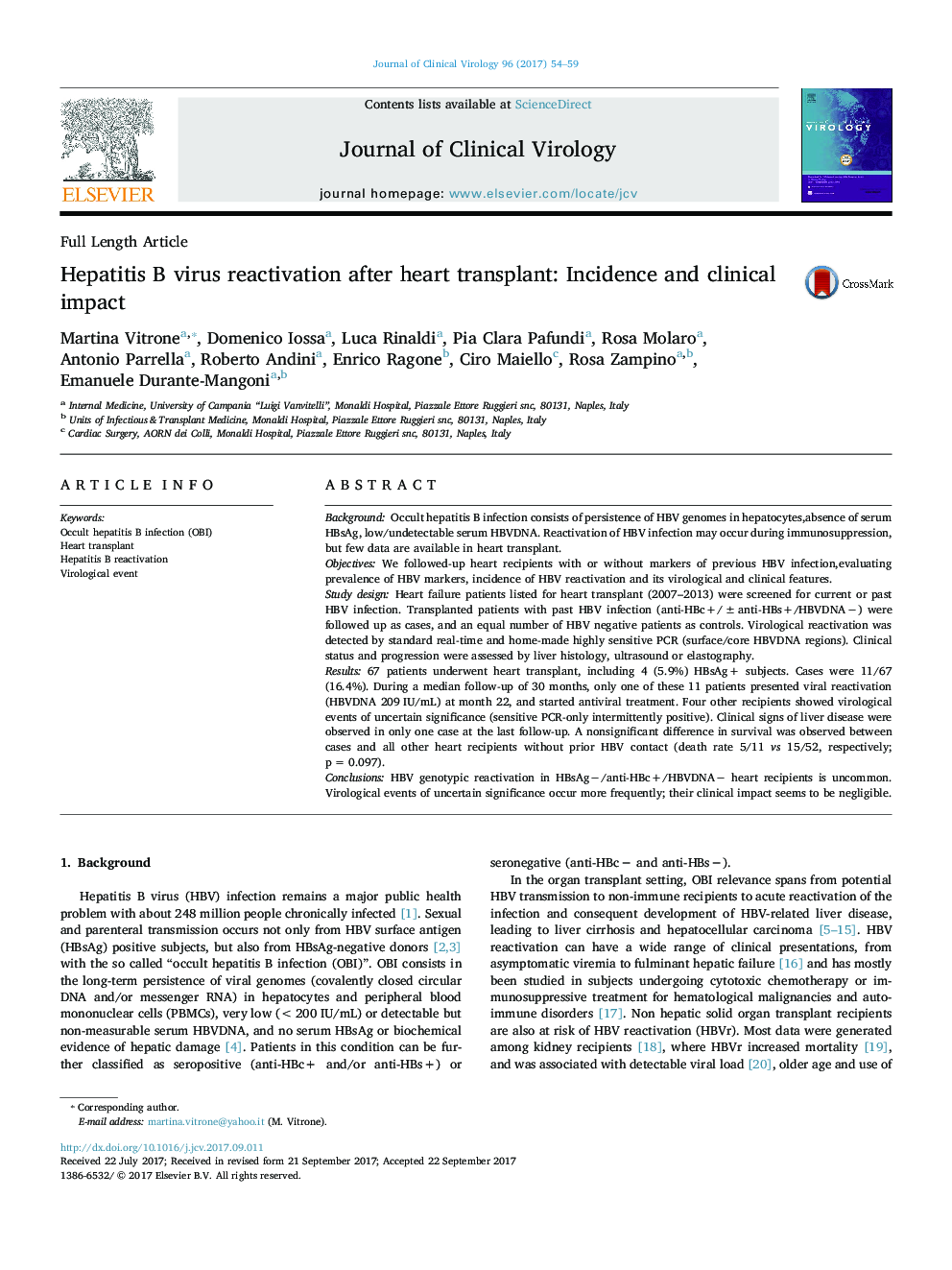| Article ID | Journal | Published Year | Pages | File Type |
|---|---|---|---|---|
| 5667970 | Journal of Clinical Virology | 2017 | 6 Pages |
â¢There are few data about reactivation of HBV infection in heart transplant.â¢HBV reactivation was evaluated in heart recipients with past HBV infection.â¢HBV reactivation in heart recipients with resolved HBV infection is uncommon.â¢Virological events of uncertain significance occur more frequently.â¢Virological events of uncertain significance seem to have no clinical impact.
BackgroundOccult hepatitis B infection consists of persistence of HBV genomes in hepatocytes,absence of serum HBsAg, low/undetectable serum HBVDNA. Reactivation of HBV infection may occur during immunosuppression, but few data are available in heart transplant.ObjectivesWe followed-up heart recipients with or without markers of previous HBV infection,evaluating prevalence of HBV markers, incidence of HBV reactivation and its virological and clinical features.Study designHeart failure patients listed for heart transplant (2007-2013) were screened for current or past HBV infection. Transplanted patients with past HBV infection (anti-HBc+/±anti-HBs+/HBVDNAâ) were followed up as cases, and an equal number of HBV negative patients as controls. Virological reactivation was detected by standard real-time and home-made highly sensitive PCR (surface/core HBVDNA regions). Clinical status and progression were assessed by liver histology, ultrasound or elastography.Results67 patients underwent heart transplant, including 4 (5.9%) HBsAg+ subjects. Cases were 11/67 (16.4%). During a median follow-up of 30 months, only one of these 11 patients presented viral reactivation (HBVDNA 209 IU/mL) at month 22, and started antiviral treatment. Four other recipients showed virological events of uncertain significance (sensitive PCR-only intermittently positive). Clinical signs of liver disease were observed in only one case at the last follow-up. A nonsignificant difference in survival was observed between cases and all other heart recipients without prior HBV contact (death rate 5/11 vs 15/52, respectively; p = 0.097).ConclusionsHBV genotypic reactivation in HBsAgâ/anti-HBc+/HBVDNAâ heart recipients is uncommon. Virological events of uncertain significance occur more frequently; their clinical impact seems to be negligible.
